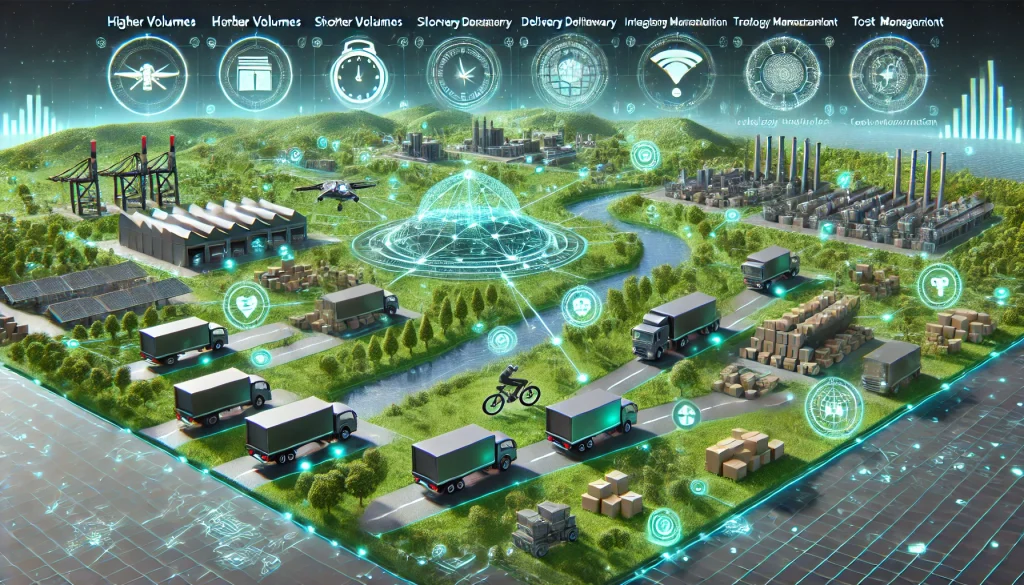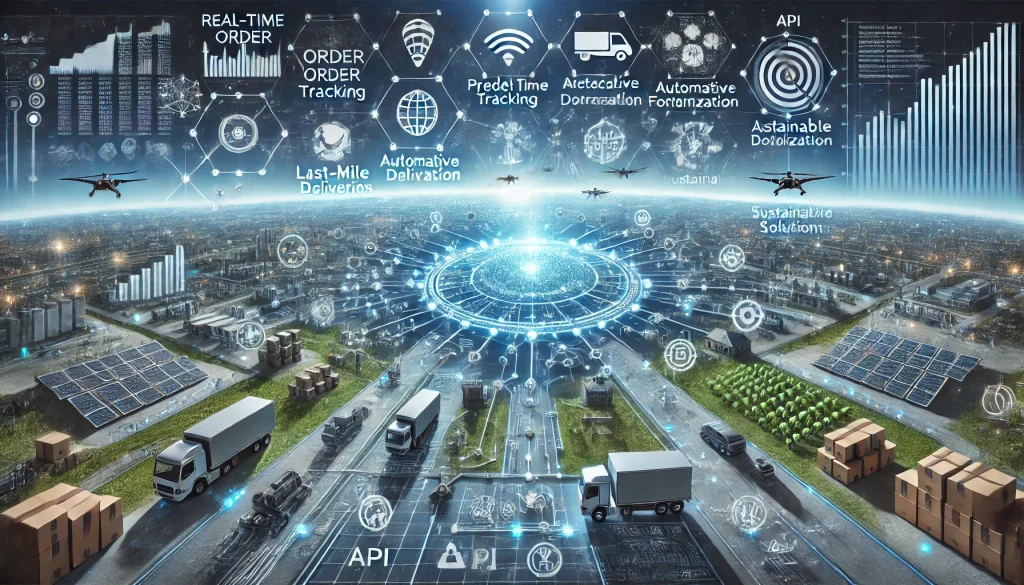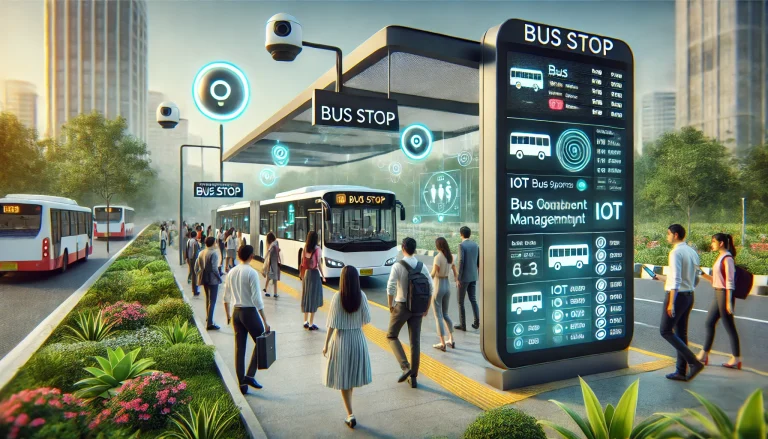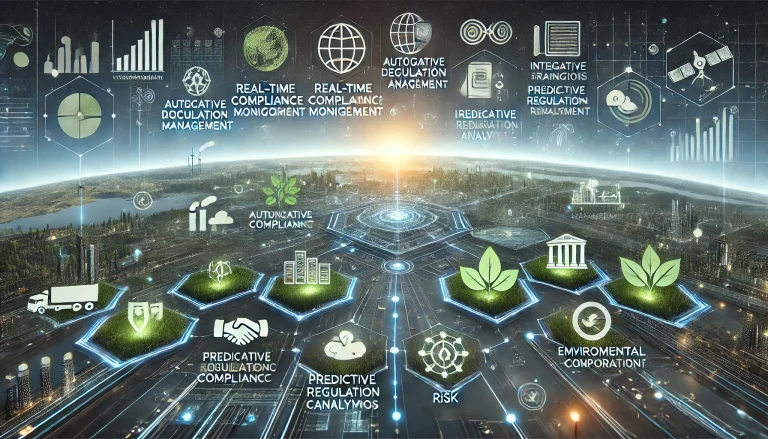Problem Statement
The rapid growth of e-commerce has significantly increased the demand for logistics and courier services. Companies must adapt to higher volumes, shorter delivery times, and increased customer expectations. Meeting these demands requires substantial investment in scalable infrastructure, efficient last-mile delivery solutions, and seamless integration with e-commerce platforms. The challenge lies in developing a comprehensive logistics platform that can handle these complexities, ensuring timely and cost-effective delivery while maintaining high levels of customer satisfaction.
Pain Points
- Higher Volumes: Managing increased order volumes without compromising on service quality.
- Shorter Delivery Times: Meeting customer expectations for fast and reliable delivery.
- Customer Expectations: Ensuring high levels of customer satisfaction with delivery services.
- Scalable Infrastructure: Investing in infrastructure that can scale with growing demand.
- Last-Mile Delivery: Optimizing the final leg of delivery to ensure efficiency and cost-effectiveness.
- Integration with E-Commerce Platforms: Seamless integration with various e-commerce platforms for smooth operations.
- Inventory Management: Effectively managing inventory to meet dynamic demand.
- Cost Management: Controlling operational costs while maintaining high service standards.
- Technology Adoption: Implementing advanced technologies to improve logistics operations.
- Sustainability: Addressing environmental concerns related to increased logistics activities.

Future Vision
Our platform envisions a future where e-commerce logistics is streamlined, efficient, and scalable. Utilizing advanced technologies such as AI, IoT, and robotics, the platform will provide real-time tracking, predictive analytics, and automated solutions for inventory management and last-mile delivery. The platform will integrate seamlessly with e-commerce platforms, ensuring a smooth flow of operations from order placement to delivery. Our vision is to create a resilient and adaptable logistics ecosystem that enhances customer satisfaction, reduces operational costs, and supports sustainable practices.
Use Cases
- Real-Time Order Tracking: IoT-enabled tracking for real-time visibility of orders.
- Predictive Analytics for Demand Forecasting: AI-driven analytics to predict demand and manage inventory efficiently.
- Automated Last-Mile Delivery: Drones and autonomous vehicles for efficient last-mile delivery.
- Seamless Integration with E-Commerce Platforms: API integration for smooth operations across multiple platforms.
- Inventory Optimization: Advanced algorithms for dynamic inventory management.
- Customer Engagement: Real-time notifications and updates to keep customers informed.
- Sustainability Initiatives: Eco-friendly packaging and delivery solutions to reduce carbon footprint.
- Cost Management Tools: Analytics for optimizing operational costs and improving efficiency.
- Scalable Infrastructure Solutions: Cloud-based infrastructure to support growing demand.
- Advanced Security Measures: Ensuring the security of customer data and transactions.
Target Users and Stakeholders
- User: E-Commerce Logistics Managers
- Age Group: 30-60 years
- Gender: M/F
- Usage Pattern: Daily usage for monitoring, planning, and decision-making
- Benefit: Enhanced efficiency, reduced costs, and improved customer satisfaction
- Stakeholders:
- E-Commerce Companies: Businesses relying on efficient logistics for customer satisfaction
- Logistics Providers: Companies handling the transportation and delivery of goods
- Technology Providers: Firms offering advanced logistics technologies
- Customers: End-users expecting timely and reliable delivery
- Investors: Entities investing in logistics and e-commerce solutions
Key Competition
- Amazon Logistics: Provides advanced logistics solutions with a focus on fast delivery.
- DHL eCommerce: Offers tailored solutions for e-commerce logistics.
- FedEx Supply Chain: Specializes in integrated logistics solutions for e-commerce.
- UPS eFulfillment: Provides end-to-end logistics solutions for e-commerce businesses.
- Shopify Fulfillment Network: Offers fulfillment services integrated with the Shopify platform.
Products/Services
- Amazon Logistics: Fast delivery solutions and advanced tracking technologies.
- DHL eCommerce Solutions: Comprehensive logistics services for online retailers.
- FedEx Supply Chain: Integrated logistics management and fulfillment services.
- UPS eFulfillment: End-to-end logistics solutions including warehousing and delivery.
- Shopify Fulfillment Network: Fulfillment services with seamless integration with Shopify stores.
Active Startups
- Shippo: Provides shipping software for e-commerce businesses.
- Flexe: Offers warehousing and fulfillment solutions on-demand.
- ShipBob: Fulfillment services for e-commerce businesses.
- Deliverr: Fast and affordable fulfillment services.
- Fetch Robotics: Autonomous mobile robots for warehouse automation.
- Bringg: Delivery logistics platform for optimizing last-mile delivery.
- Nuro: Autonomous delivery vehicles for last-mile logistics.
- Locus Robotics: Robots for automating warehouse operations.
- ParcelLab: Real-time shipment tracking and post-purchase experience platform.
- Onfleet: Delivery management software for efficient logistics operations.
Ongoing Work in Related Areas
- AI and Machine Learning: Enhancing predictive analytics for demand forecasting and inventory management.
- IoT: Real-time tracking and monitoring of shipments and inventory.
- Robotics: Automation of warehouse operations and last-mile delivery.
- Sustainability: Developing eco-friendly logistics practices and reducing carbon footprint.
- Blockchain: Ensuring transparency and security in the logistics chain.
Recent Investment
- Shippo: $45M in Series D funding led by Bessemer Venture Partners, May 2021.
- Flexe: $70M in Series C funding led by T. Rowe Price Associates, March 2021.
- ShipBob: $200M in Series E funding led by Bain Capital Ventures, September 2021.
- Deliverr: $170M in Series D funding led by Coatue Management, February 2021.
- Fetch Robotics: Acquired by Zebra Technologies for $290M, July 2021.
Market Maturity
The market for e-commerce logistics solutions is maturing rapidly, driven by the explosive growth of online retail and the increasing demand for fast and reliable delivery. Significant investments in AI, IoT, robotics, and other advanced technologies are transforming the industry, with both established companies and innovative startups leading the way. As the market continues to evolve, we can expect more integrated and advanced platforms that enhance efficiency, reduce costs, and improve customer satisfaction in e-commerce logistics.
Summary
The rapid growth of e-commerce has significantly increased the demand for logistics and courier services. Companies must adapt to higher volumes, shorter delivery times, and increased customer expectations. Meeting these demands requires substantial investment in scalable infrastructure, efficient last-mile delivery solutions, and seamless integration with e-commerce platforms. Our proposed platform leverages AI, IoT, and robotics to provide real-time tracking, predictive analytics, and automated solutions for inventory management and last-mile delivery. Key pain points include managing higher volumes, meeting shorter delivery times, ensuring customer satisfaction, investing in scalable infrastructure, optimizing last-mile delivery, integrating with e-commerce platforms, managing inventory, controlling costs, adopting new technologies, and addressing sustainability.
Target users include e-commerce logistics managers, with stakeholders encompassing e-commerce companies, logistics providers, technology providers, customers, and investors. Key competitors like Amazon Logistics, DHL eCommerce, FedEx Supply Chain, UPS eFulfillment, and Shopify Fulfillment Network offer various e-commerce logistics solutions. Active startups such as Shippo, Flexe, ShipBob, Deliverr, and Fetch Robotics are driving innovation in this space. Recent investments highlight significant interest and growth potential in e-commerce logistics technology.
By addressing these challenges and leveraging advanced technologies, our platform aims to create a scalable, efficient, and customer-centric logistics ecosystem that enhances e-commerce operations and ensures timely and cost-effective delivery.


